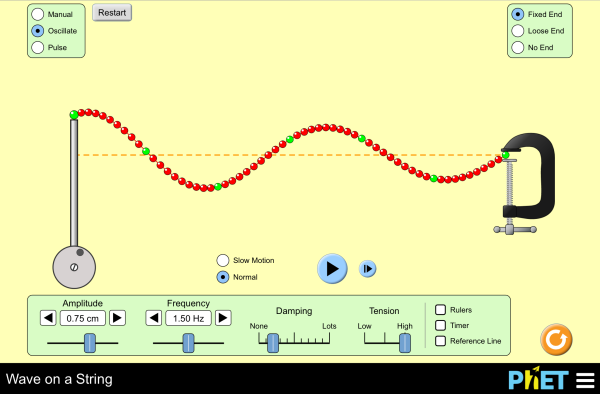Image Source:
https://phet.colorado.edu/en/simulation/wave-on-a-string
Summary:
There are two types of waves, mechanical waves and electromagnetic waves. Mechanical wave srequire a medium to go through. Electromagnetic waves don't require a medium to go through. Mechanical and electromagnetic waves can be affected by many catagories such as amplitude, frequency, and tension.
S&EP:
SP2: Developing and using models
This week I used a simulator and a rope to see how waves work and what can affect them. This is SP2: Developing and using models because I am using a visual and real life model to see how waves work and what can affect them.

